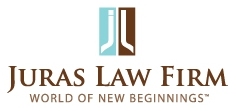Stop Harassing Phone Calls
One of the ways to stop the harassing calls from debt collectors is to file for bankruptcy protection. When a bankruptcy is filed, an “automatic stay” goes into effect and the collectors and creditors have to stop calling. However, filing for bankruptcy protection is not the only way to stop the harassing phone calls. Consumers are protected from certain abusive and deceptive practices by debt collectors under federal law, the Fair Debt Collection Practices Act (FDCPA). The FDCPA covers only debt collection practices by debt collectors. The FDCPA does not cover the debt collection practices by the original creditors (with some exceptions). The debt collector is someone, who regularly collects debts owed to someone else. Some states have state consumer protection laws which regulate the original creditors. The FDCPA covers only personal debts, not business debts. The FDCPA prohibits certain types of abusive and deceptive conduct when attempting to collect on a debt, including the following:
- Contacting the consumer outside of the hours of 8:00 am to 9:00 pm local time at the consumer’s location;
- Contacting the consumer (with exceptions) after being asked by the consumer in writing to stop;
- Contacting the consumer after being asked by consumer in writing for verification of a debt (or for the name and address of the original creditor) before such verification is mailed;
- Contacting the consumer known to be represented by an attorney with respect to the subject debt;
- Contacting the consumer at work if the debt collector knows the employer prohibits such communication (e.g., if the consumer has so informed the debt collector);
- Using obscene, profane or abusive language;
- Using threat of use of violence;
- Repeated calls with such frequency as to harass the consumer;
- “Shaming” the consumer into payment by publicizing the debt;
- Communicating by post card;
- Using any language or symbol or any envelope that indicates that the communication related to the collection of a debt, etc.
The courts have awarded “actual damages” for FDCPA violations, including damages for personal humiliation, embarrassment, mental anguish or emotional distress. Simply knowing your rights may be an effective way to stop the collection agencies from continuing to make those harassing phone calls. If you want to stop the harassing calls, call the Juras Law Firm at (480) 425-2009 or contact us via email today!
